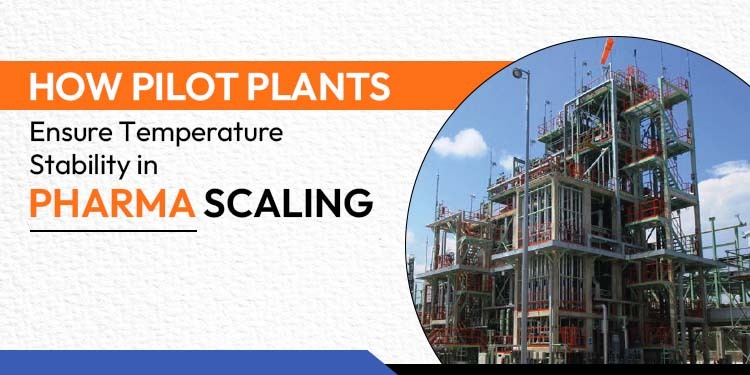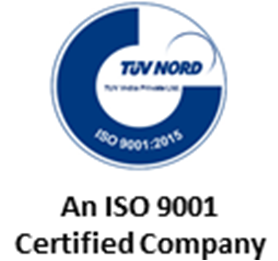Premier Pilot Plant People

How Pilot Plants Ensure Temperature Stability in Pharma Scaling
How Pilot Plants Ensure Temperature Stability in Pharma Scaling
In pharmaceutical manufacturing, even the smallest variation in reaction conditions can alter the outcome. A drift of just 0.1°C can cut selectivity by up to 15%, directly affecting yields, purity, and regulatory compliance. As processes move from laboratory experiments to commercial production, the challenge of maintaining precise temperature control becomes more complex. Pilot plants bridge this gap, providing the environment, equipment, and controls necessary to secure precision before variability impacts outcomes.Why Temperature Stability Matters in Pharma Processes
Pharma reactions are often highly sensitive to thermal changes. The selectivity, yield, and purity of active pharmaceutical ingredients (APIs) depend on tightly controlled reaction conditions. Key risks from temperature drifts include:- Loss of selectivity: Unwanted side reactions may occur.
- Yield reduction: Valuable product is lost due to incomplete conversion.
- Impurities: Higher impurity levels raise compliance and safety issues.
- Scaling inefficiencies: Results achieved at the lab scale fail to replicate at the production scale.
Challenges of Temperature Control During Scale-Up
Scaling up from laboratory to production introduces new complexities:- Thermal mass: Larger equipment takes longer to heat and cool.
- Heat transfer: Uneven heating can create hot spots or cold zones.
- Mixing efficiency: Stirring and flow dynamics change with volume.
- External environment: Heat loss or gain to the surroundings becomes more significant.
- Instrumentation drift: Aging sensors and poorly calibrated systems reduce accuracy.
The Role of Pilot Plants in Managing Temperature Stability
Pilot plants serve as the intermediate step between laboratory and production. They replicate essential process parameters while allowing engineers to detect and control thermal variability before full-scale investment. Core functions include:- Validation of thermal profiles under near-commercial conditions.
- Testing control systems for heating, cooling, and feedback loops.
- Identifying process sensitivities to temperature changes.
- Building operator familiarity with response times and adjustments.
How Pilot Plants Ensure Precise Temperature Control
1. Advanced Instrumentation and Control Systems
- SCADA integration allows real-time monitoring of temperature data across multiple sensors.
- Automated feedback loops adjust heating and cooling instantly to maintain precise temperature control.
- Alarms and shutdowns protect processes when deviations occur.
2. Customized Hardware for Pharma Reactions
- Tailored reactor jackets and heat exchangers maintain uniform conditions.
- Modular skid-mounted designs reduce variability during assembly and operation.
- Configurations can be adapted for specific reaction kinetics and exothermic behaviors.
3. Thermal Gradient Management
- Proper insulation reduces heat loss and external interference.
- Efficient mixing ensures uniform distribution of temperature across reactor volumes.
- Design strategies prevent hot spots and localized material degradation.
4. Revamping and Upgrading Existing Pilot Plants
- Control systems can be modernized with new automation technology.
- Sensors and calibration are upgraded to meet stricter pharma requirements.
- Retrofitting extends plant life while ensuring ongoing precision.
5. Durability and Maintenance for Stability
- High-quality materials withstand repeated heating and cooling cycles.
- Reduced maintenance downtime ensures continuous process consistency.
- Reliable performance lowers the risks of uncontrolled drifts.
Industry Experience in Pharma Applications
Pilot plants have been successfully deployed across fine chemicals and pharmaceutical industries, where temperature control directly impacts compliance with regulatory standards such as cGMP. With 30+ years of expertise, 200+ projects, and clients across 10+ countries, solutions have evolved to address the specific needs of scaling in pharma:- Lab-scale, pilot-scale, and demonstration units for process development.
- Turnkey solutions designed for a smooth transition from R&D to production.
- Collaborative engineering that tailors every design to client processes.
Securing Precision Before Scaling Up
The ultimate value of a pilot plant lies in its ability to predict and prevent issues before they impact full-scale operations. For pharmaceutical manufacturers, securing precision in temperature control safeguards:- Higher yields
- Consistent purity
- Lower operational risks
- Faster regulatory approvals
Conclusion
Temperature stability is not just a process parameter; it is a cornerstone of pharmaceutical quality. Even a fraction of a degree drift can have cascading effects on selectivity, yield, and compliance. Pilot plants provide the technical environment, instrumentation, and engineering expertise required to manage these challenges, bridging laboratory innovation with commercial-scale reliability. For the pharmaceutical industry, the message is clear: secure precision at the pilot scale before variability impacts outcomes.Get in Touch
You will be amazed as how partnering with us becomes a game changer in your quest for R&D glory.

 Call Us
Call Us